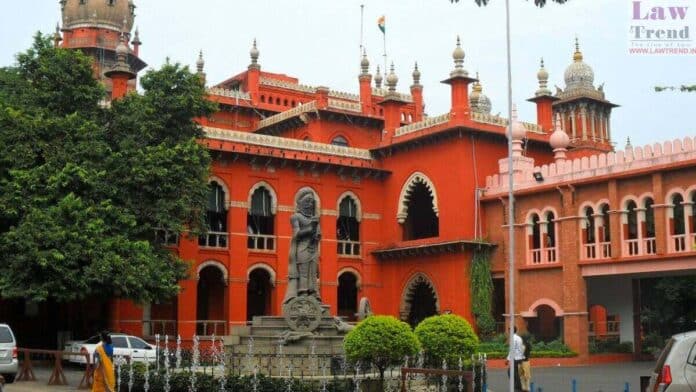The question whether the killing of Hindu religious leaders by itself can constitute a terrorist act is “debatable,” the Madras High Court has said in reference to a particular case.
A Division bench of Justices S S Sundar and Sunder Mohan made the observation while hearing the bail plea of an alleged ISIS sympathiser, and also set him on liberty with a string of conditions, recently.
The case of the prosecution was that the appellant, Erode resident Asif Musthaheen wanted to become a member of the banned organisation for the purpose of targeting leaders of Hindu organisations in and around the area where he was living and to carry out his plan, he was in constant touch with another accused.

It contended the messages between them in Arabic would show he intended to cause threat to the unity and integrity of India and wanted to kill members of the Hindu Organisations. He he was guilty of the offences under Sections 18 and 38(2) of the UA (P) Act, the prosecution had submitted.
However, the court said the text messages do not indicate anywhere that the appellant had joined the proscribed ISIS.
“We also do not find any evidence adduced by the prosecution to prove that A2 is a member of ISIS. Even assuming that A2 is a member of ISIS, the text messages only indicate that the appellant/A1 wanted to be close to A2. Proximity to an individual is different from associating oneself with or professing to be associated with the terrorist association to further its activities,” the bench said.
Apart from the communications, the respondent police relied upon the recovery of two knives and pictures of the appellant holding a knife, and a picture of an unknown person holding a severed head.
As regards the offence under section 18 of the Unlawful Activities (Prevention) Act, it is the prosecution case in the final report that A1 and A2 conspired to commit terrorist acts in India against Hindu religious leaders belonging to the BJP and RSS, the court noted.
“The evidence discloses that the conspiracy was to attack certain religious leaders. The respondent has not spelt out how that would amount to a terrorist act as defined under Section 15 of the UA (P) Act. In order to bring an act under Section 15 of the UA (P) Act, the act must be done with an intent to threaten or likely to threaten the unity, integrity, security, economic security, or sovereignty of India or with an intent to strike terror or likely to strike terror in the people or any section of the people in India or in any foreign country.”
“The question as to whether the killing of Hindu religious leaders by itself can constitute a terrorist act is debatable. However, considering the broad probabilities of the case from the materials collected by the prosecution, one cannot definitely conclude that there was a conspiracy to commit a terrorist act, though there is a conspiracy to commit other illegal acts including serious offences,” the court said.
Also Read
It however, made it clear “that observations with regard to the prima facie case under Sections 18 and 38(2) of the UA (P) Act are only made by taking into consideration the broad probabilities of the case and for the purpose of considering the bail application.”
The court granted bail to the appellant, whose similar plea was rejected by a local court in Erode earlier.
The HC set him on liberty with various conditions,including asking him to execute a bond and furnish two sureties for a likesum of Rs 50,000 each, with one of the sureties being by a blood relative.
Among others, it directed that after coming out from jail, he should stay at Erode and not leave the city without the permission of the trial court.







